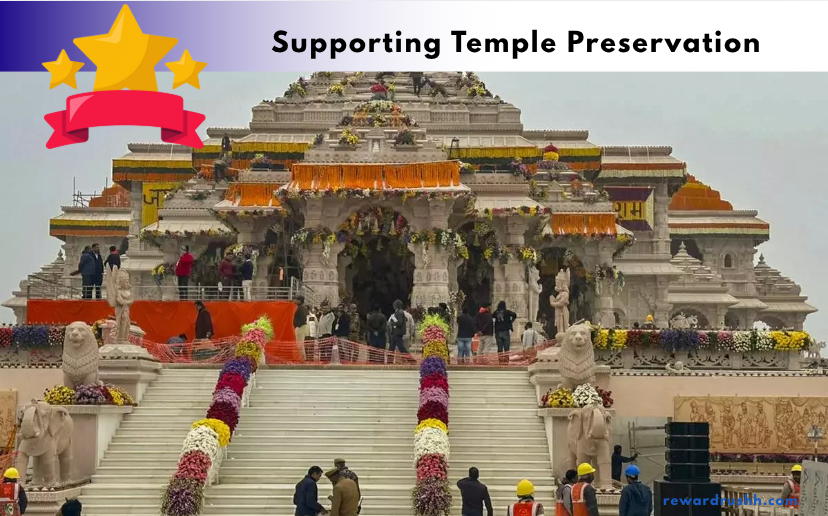Ever dreamt of stepping back in time, wandering through ancient temples whispering stories of bygone eras? It’s an incredible experience, but exploring these historical sites responsibly is crucial. You wouldn’t want to be that tourist, right?
This article is your guide to temple tips for exploration and preservation. We’ll cover everything from respectful etiquette to ways you can help protect these invaluable landmarks. Get ready to become a conscious and culturally aware traveler!
Planning Your Temple Visit
Preparation is key to a fulfilling and respectful temple visit. A little research can significantly enhance your experience.
Researching Temple History and Significance
Before you even pack your bags, dive into the history of the temple you plan to visit. Understand its cultural and religious significance.
Knowing the stories behind the stones will make your visit far more meaningful. It will also help you appreciate the site’s importance to the local community.
Understanding Local Customs and Etiquette
Temples are often sacred spaces. Understanding and respecting local customs is paramount.
Dress modestly, remove your shoes where required, and be mindful of your behavior. Silence your phone and avoid loud conversations.
Checking for Permits and Regulations
Some temples may require permits for entry, especially for photography or video recording. Always check in advance.
Regulations are in place to protect the site and ensure a smooth experience for all visitors. Adhering to these rules is a must.
Responsible Temple Exploration
Once you’re at the temple, responsible exploration is all about being mindful and respectful.
Dressing Appropriately
Modest attire is generally expected at temples. Cover your shoulders and knees.
Some temples may provide wraps or sarongs for visitors who are not appropriately dressed.
Removing Shoes and Headwear
In many cultures, removing shoes before entering a temple is a sign of respect. Be sure to observe this custom.
Similarly, headwear may need to be removed or covered, depending on the local tradition.
Maintaining Silence and Respect
Temples are often places of worship and contemplation. Keep your voice down and avoid loud conversations.
Refrain from disruptive behavior that could disturb other visitors or worshippers.
Avoiding Touching or Climbing on Structures
Preserve the integrity of the temple by avoiding touching or climbing on any structures. These ancient sites are delicate and vulnerable.
Even seemingly harmless contact can contribute to erosion and damage over time.
Photography Guidelines
Always check the photography policy before taking pictures. Some temples prohibit photography altogether.
If photography is allowed, avoid using flash, which can damage delicate artwork and artifacts. Be respectful of worshippers and avoid taking pictures of them without their permission.
Supporting Temple Preservation

Your visit can contribute to the preservation of these incredible sites. Here’s how:
Contributing to Conservation Efforts
Many temples rely on donations for their upkeep and restoration. Consider making a contribution to support their conservation efforts.
Your donation, no matter how small, can make a significant difference in preserving these sites for future generations.
Volunteering Your Time and Skills
If you have specific skills, such as architecture, archaeology, or fundraising, consider volunteering your time to help with temple preservation projects.
Many organizations are actively involved in preserving historical sites, and they often welcome volunteers.
Spreading Awareness
Share your experiences and insights with others to raise awareness about the importance of temple preservation.
Use social media, write blog posts, or simply talk to your friends and family about the need to protect these cultural treasures.
Choosing Sustainable Tourism Options
Support local businesses and tour operators that prioritize sustainable tourism practices.
These businesses are committed to minimizing their environmental impact and supporting the local community.
Respecting Local Communities
Remember that temples are often deeply intertwined with the local community. Show respect for the people who live near the temple and their traditions.
Engage with locals in a respectful and courteous manner. Learn about their culture and customs.
Temple Tips for Specific Regions
Different regions have unique temple customs and traditions. Here are some tips for specific areas:
Southeast Asia
Southeast Asian temples often require visitors to remove their shoes and cover their shoulders and knees. Be prepared for hot and humid weather.
Buddhism is the predominant religion in many Southeast Asian countries. Be mindful of Buddhist customs and traditions.
East Asia
East Asian temples often have intricate gardens and architecture. Take your time to explore the grounds and appreciate the details.
Confucianism and Taoism are also influential in East Asia. Be aware of these philosophical traditions.
South Asia
South Asian temples are often richly decorated with colorful sculptures and carvings. Be prepared for crowds, especially during festivals.
Hinduism is the predominant religion in South Asia. Be respectful of Hindu customs and traditions.
The Middle East
Temples and historical sites in the Middle East often have strict security measures. Be prepared for bag checks and other security procedures.
Islam is the predominant religion in many Middle Eastern countries. Dress modestly and be respectful of Islamic customs and traditions.
The Future of Temple Preservation

The future of temple preservation depends on our collective efforts. Here are some key considerations:
Addressing Climate Change
Climate change poses a significant threat to temples and other historical sites. Rising sea levels, extreme weather events, and increased erosion can all damage these delicate structures.
We must take action to reduce our carbon footprint and mitigate the effects of climate change.
Combating Vandalism and Looting
Vandalism and looting are ongoing threats to temples around the world. Increased security measures and public awareness campaigns can help to deter these crimes.
Report any suspicious activity to the authorities.
Balancing Tourism and Preservation
Finding a balance between tourism and preservation is crucial. Too much tourism can damage temples, while too little can deprive them of much-needed funding.
Sustainable tourism practices can help to minimize the negative impacts of tourism while still providing economic benefits to local communities.
Utilizing Technology for Preservation
Technology can play a vital role in temple preservation. 3D scanning, virtual reality, and other technologies can be used to document and preserve temples for future generations.
These technologies can also be used to create virtual tours and educational resources.
Exploring temples is a privilege and a responsibility. By following these temple tips for exploration and preservation, you can ensure that these incredible sites remain for future generations to appreciate. Let’s all strive to be conscious travelers and contribute to the protection of our shared cultural heritage. What are your experiences visiting temples around the world? Share your thoughts and tips in the comments below!
Frequently Asked Questions (FAQ)
Here are some frequently asked questions about temple exploration and preservation:
Q: What should I wear when visiting a temple?
A: Dress modestly, covering your shoulders and knees. Avoid wearing revealing clothing. Some temples may provide wraps or sarongs if needed.
Q: Is it okay to take pictures inside a temple?
A: Check the temple’s photography policy before taking pictures. Some temples prohibit photography altogether, while others may allow it without flash. Be respectful of worshippers and avoid taking pictures of them without their permission.
Q: How can I contribute to temple preservation efforts?
A: You can contribute by donating to conservation organizations, volunteering your time and skills, spreading awareness, and choosing sustainable tourism options. Every little bit helps!










